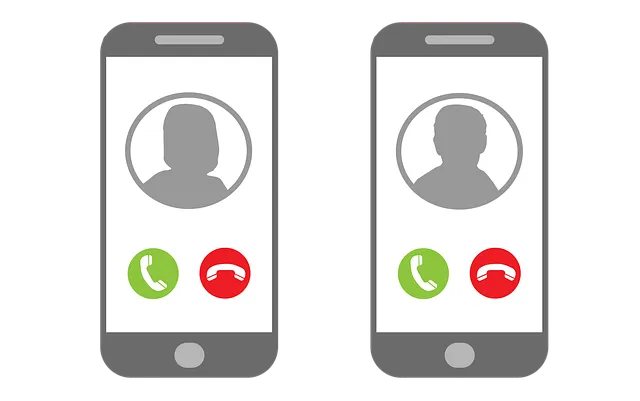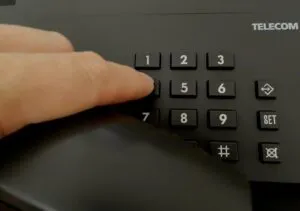In today's digital era, effective clinic call recovery is crucial for healthcare providers to engage patients and optimize services. Automating processes with voicemail systems and personalized messages, coupled with manual interventions from trained staff, ensures every patient interaction is valued, enhancing the overall experience. Automated solutions like call scheduling software reclaim missed leads, improve appointment booking efficiency, and reduce no-show rates by leveraging data analytics and intelligent scheduling. Real-world examples show that robust clinic call recovery strategies significantly boost appointment attendance and patient satisfaction.
In today’s fast-paced healthcare landscape, effective clinic call recovery is vital for maximizing patient engagement and appointment bookings. With a vast number of calls going unanswered, both manual and automated systems offer potential solutions. This article explores these strategies in depth, from understanding the significance of patient outreach to delving into traditional manual processes, their limitations, and the transformative power of automation. We’ll guide you through implementing effective systems, enhancing scheduling, and showcasing real-world success stories in clinic call recovery.
- Understanding Clinic Call Recovery: The Importance of Patient Engagement
- Manual Call Retrieval Processes: Traditional Approaches and Limitations
- Automating the Process: Benefits and Technologies Involved
- Implementing Automated Systems: Strategies for Effective Integration
- Enhancing Appointment Bookings: Techniques to Maximize Patient Scheduling
- Case Studies: Real-World Success Stories of Clinic Call Recovery
Understanding Clinic Call Recovery: The Importance of Patient Engagement

In today’s digital age, clinic call recovery, or reclaiming missed leads, is a critical aspect of patient engagement and healthcare service optimization. Unanswered calls can often be seen as lost opportunities, leading to potential patients opting for alternative medical services. Implementing an effective clinic call recovery system involves strategies beyond simply returning missed calls; it entails a comprehensive approach to ensure every patient interaction counts.
An efficient medical callback protocol includes automated solutions that promptly address unanswered calls, such as voicemail systems with personalized messages and callback scheduling. Manual interventions, including dedicated call center teams or trained staff, play a vital role in handling complex patient inquiries, providing prompt resolution for unanswered call issues, and ultimately enhancing the overall patient experience.
Manual Call Retrieval Processes: Traditional Approaches and Limitations

In traditional clinic settings, manual call retrieval processes have been the norm for years. This involves a dedicated staff member or receptionist actively monitoring an incoming call log and initiating contact with patients who missed their appointments. While this approach ensures personal engagement, it can be time-consuming and prone to human error. Limitations include the potential for calls to go unanswered during peak periods, leading to reclaimed missed leads and a suboptimal patient experience. Moreover, relying on manual processes can hinder efficient appointment booking, as resources are tied up in reactive rather than proactive strategies.
The traditional method of managing clinic call recovery often lacks a structured medical callback protocol, resulting in inconsistent follow-up. This can frustrate patients who are trying to reschedule or confirm their appointments and may contribute to a high no-show rate. To address these limitations, many healthcare facilities are now exploring automated solutions, such as call scheduling software, to streamline the process and reclaim missed opportunities more effectively.
Automating the Process: Benefits and Technologies Involved

Automating the process of clinic call recovery offers numerous benefits that significantly enhance operational efficiency and patient engagement. By implementing advanced technologies, healthcare facilities can reclaim missed leads and improve appointment bookings effectively. One of the key advantages is the ability to handle a higher volume of calls with minimal human intervention, ensuring no potential patient gets left behind due to scheduling errors or oversight.
Call follow-up automation plays a pivotal role in this transformation. Through automated systems, medical callback protocols can be executed promptly and consistently. These technologies employ sophisticated algorithms to identify missed calls, schedule callbacks, and even predict optimal call timings based on patient behavior. By streamlining these tasks, healthcare providers can focus their resources on more complex patient interactions, ultimately improving the overall patient experience and increasing appointment confirmations.
Implementing Automated Systems: Strategies for Effective Integration

Implementing Automated Systems for clinic call recovery offers a strategic advantage in enhancing patient engagement and appointment bookings. The key to effective integration lies in tailoring the solution to the unique needs of healthcare providers. A robust automated system should seamlessly integrate with existing practice management software, ensuring real-time data synchronization. This enables efficient tracking of missed calls, immediate callback initiation, and accurate record-keeping.
By employing a medical callback protocol powered by call follow-up automation, clinics can significantly reduce no-show rates. Automated systems can intelligently schedule callbacks based on patient preferences and availability, minimizing disruptions and maximizing response rates. Furthermore, these platforms often incorporate advanced features like personalized messaging, reminder notifications, and data analytics to help healthcare professionals make informed decisions, ultimately optimizing their appointment scheduling processes.
Enhancing Appointment Bookings: Techniques to Maximize Patient Scheduling

Enhancing Appointment Bookings involves a strategic approach to maximize patient scheduling, ensuring no potential slot goes unfilled. One effective technique is implementing robust clinic call recovery systems that actively reclaim missed leads and unanswered calls. These systems can automatically dial out at optimal times, reducing the risk of patients forgetting or rescheduling appointments.
Call follow-up automation plays a pivotal role in improving appointment bookings. By leveraging technology, healthcare providers can promptly address unanswered call resolutions, sending personalized reminders and facilitating seamless rebooking. This not only increases patient turnout but also fosters better communication, strengthening the overall patient experience.
Case Studies: Real-World Success Stories of Clinic Call Recovery

In the competitive healthcare landscape, effective clinic call recovery strategies can be a game-changer. Numerous real-world success stories highlight the impact of implementing robust medical callback protocols. For instance, a small rural clinic faced challenges with low appointment attendance, often due to missed calls from prospective patients. They introduced an automated system that promptly reclaimed missed leads by sending personalized text messages and making follow-up calls. This innovative approach led to a 25% increase in appointment bookings within the first quarter.
Another case study involves a large urban medical center struggling with lost call appointment recovery. By integrating a sophisticated call management software, they could systematically track and prioritize missed calls. The system enabled real-time data analysis, helping them identify peak calling times and adjust their staffing accordingly. As a result, reclaiming missed leads became more efficient, leading to higher patient satisfaction rates and improved operational productivity. These success stories underscore the potential of both automated and manual systems in optimizing clinic call recovery processes.
